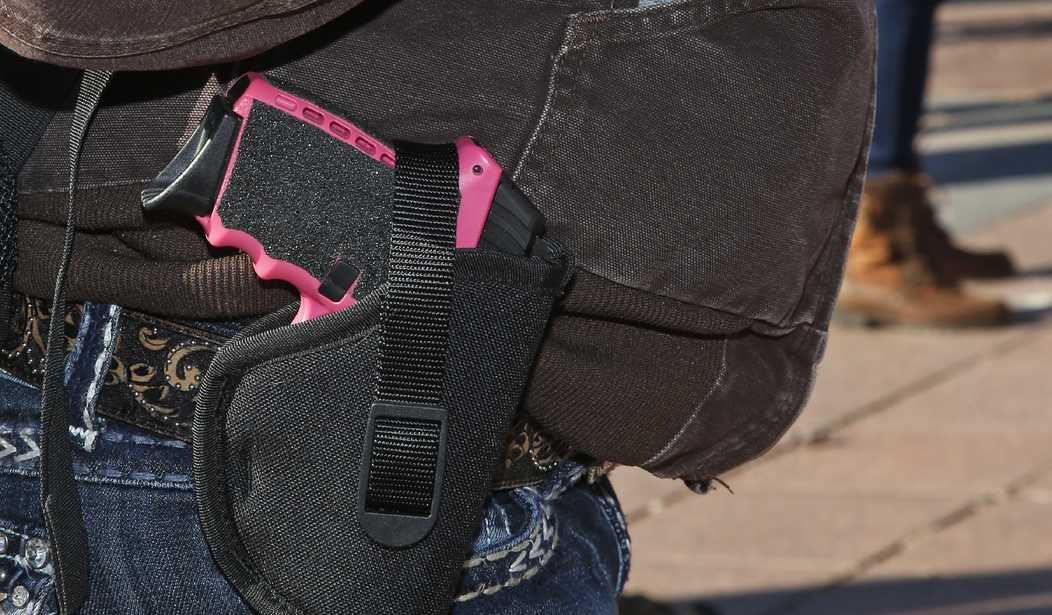The Supreme Court’s decision in Bruen on Thursday didn’t simply shoot down New York’s onerous “good-cause requirement” in the gun permit application process. It set up similar laws in other states for likely revocation. One of those states is California, where they have their own requirement that applicants must show a “good cause” or “special need” before a carry permit is issued. State Attorney General Rob Bonta sent out a letter on Friday to law enforcement and government attorneys noting the change and saying that the state’s current “may issue” regime should be able to be converted to a “shall issue” regime with few modifications. So that’s good news, right?
Not so fast. As Eugene Volokh points out at Reason, Bonta pivoted from signaling compliance with the new SCOTUS ruling to identifying another way to deny permits to people with no criminal record. He claims that the ruling will not impact the existing requirement for applicants to be able to demonstrate that they are “of good moral character.” On that basis, the state can start snooping around to see if you hold any unauthorized opinions or are prone to demonstrate “hatred and racism.” And how would they know that? Well, by going through your social media accounts, of course.
Other jurisdictions list the personal characteristics one reasonably expects of candidates for a public-carry license who do not pose a danger to themselves or others. The Riverside County Sheriff’s Department’s policy, for example, currently provides as follows: “Legal judgments of good moral character can include consideration of honesty, trustworthiness, diligence, reliability, respect for the law, integrity, candor, discretion, observance of fiduciary duty, respect for the rights of others, absence of hatred and racism, fiscal stability, profession-specific criteria such as pledging to honor the constitution and uphold the law, and the absence of criminal conviction.” [Emphasis added.]
As a starting point for purposes of investigating an applicant’s moral character, many issuing authorities require personal references and/or reference letters. Investigators may personally interview applicants and use the opportunity to gain further insight into the applicant’s character. And they may search publicly-available information, including social media accounts, in assessing the applicant’s character. [Emphasis added.]
As Volokh goes on to explain, this entire scheme appears to be completely unconstitutional. It’s a violation of the First Amendment before we even begin to examine how it would hold up under the Second Amendment. The government is not allowed to restrict your actions or suspend your Constitutional rights based on the viewpoints you express, even if they are unpopular with the current regime.
This is an even more critical distinction to make in an era where the government is busy redefining words and appointing people to decide what is or isn’t “misinformation.” If you spoke out against the violence on display during the BLM riots, you’ve already been defined as a “racist.” Based on that alone, the California AG could determine that you are of insufficiently good moral character to be approved for a permit. If you applauded the overturning of Roe v Wade you are no doubt already on a list of “haters” of some sort so you can be similarly denied.
Volokh correctly describes the words “hatred” and “racism” as being “potentially extraordinarily broad and vague terms.” Of course they are. And that’s more true than ever in the current climate as I described above.
The problem is that this clause has been on the books in California for years. Nobody really noticed it, however, because the state government was too busy denying carry permits to people because of their supposed lack of a “good cause.” They didn’t need to bother checking into your “good moral character” because most people never made it that far in the process. And the ruling in Bruen didn’t address this point.
What that means is that if California simply begins denying carry permit applications in massive numbers based on this clause, a challenge will have to be brought against them and the whole process will have to start all over again. The Bruen case had been grinding its way through the courts since 2018 before finally reaching a conclusion last week. If someone has to start over from scratch in California, the state will be able to continue flaunting the Constitutional rights of citizens for years to come.








Join the conversation as a VIP Member